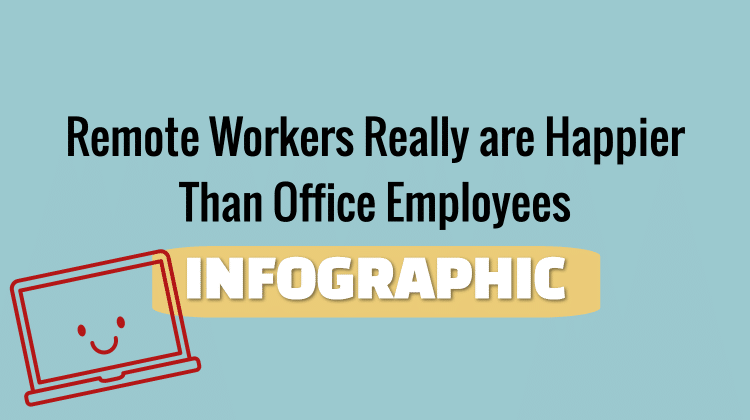
I can say without a doubt that I’m happier than ever when I’m working remotely. But is remote working the secret to happiness for everyone?
According to research from TINYpulse, remote working has significant perks for some people. If you like having the freedom of choosing where and when to work and are okay without having frequent direct coworker interaction, then you’ll probably be very happy working remotely. If you’re the kind of person who thrives on social interaction during work hours, then remote working might not be right for you.
According to the research by TINYpulse, 91% of remote workers believe they are more productive when they’re working from home than in an office setting. As a former office worker in Corporate America, I would definitely be part of that 91%. There is simply no way to limit distractions when coworkers are walking into your cube and you’re constantly called into meetings throughout the day. When I work remotely, I choose when I want to let a potential distraction turn into a real interruption.
The research also found that overall, remote employees are happier than in-office employees, feel more valued at work, and are more likely to see themselves working in the same place in one year.
The first obstacle to successfully implementing remote working into an organization is accepting the fact that an employee’s work hours don’t have to fall between the traditional 8:00 a.m. and 6:00 p.m., Monday through Friday schedule. According to the TINYpulse study, remote workers are happiest when they work seven days per week with shorter hours each day. I know I am!
The reason unusual schedules work for remote workers is because many of them prefer to work autonomously and are capable of self-managing. The TINYpulse research revealed that the largest percentage of remote workers (34%) prefer to have direct contact with their supervisors just once per week. The second largest percentage of remote workers (31%) prefer to have direct contact with their supervisors just one time per day.
Bottom-line, this research shows that remote working does work for the right employees. You can follow the link above to read the full report, or take a look at the infographic from TimeDoctor below for a snapshot of the findings.





